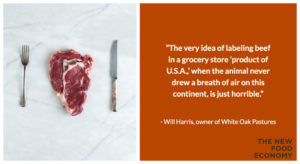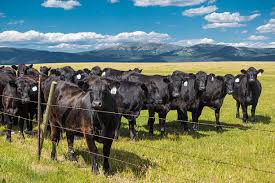
Last month, in a petition formally filed with the United States Department of Agriculture (USDA), two advocacy groups made a stunning claim: Your American grass-fed beef might actually come from overseas, even if it’s labeled “Product of U.S.A.”
Those two groups—the American Grassfed Association (AGA), which offers the country’s leading “grass-fed” certification, and the Organization for Competitive Markets, a watchdog group that fights corporate consolidation in the food industry—point out that a massive regulatory loophole allows companies to falsely, and yet legally, claim their imported beef comes from our pastures.
The trouble began in 2015, when the Obama administration’s USDA rolled back Country of Origin Labeling (COOL) for beef and pork products, allowing meat to be sold without disclosing its home country on the label. But that decision, which angered many American ranchers, has further muddied the waters in a way no one quite anticipated. Under the current rules, beef and pork products that are shipped to the United States and processed further here, can be labeled “product of U.S.A.,” even if the animal was raised a continent away. That means a steer slaughtered in Uruguay and broken down into steaks at a meatpacking plant in Colorado is technically American meat—even if it isn’t.
